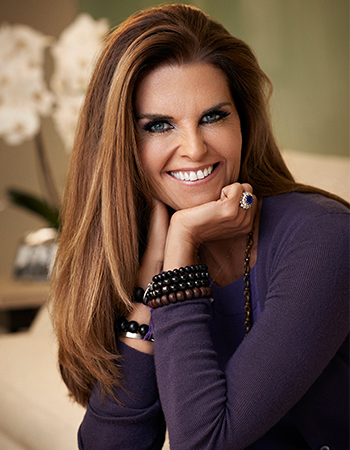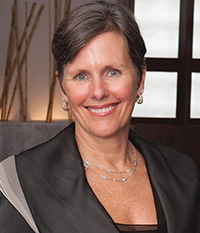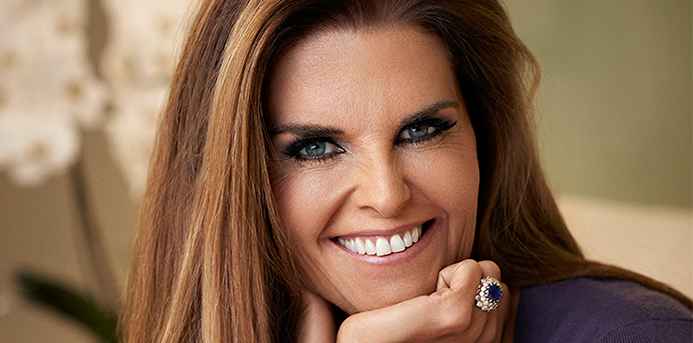
When Maria Shriver’s father was diagnosed with Alzheimer’s (and later died from the disease in 2011), it set her on a course to support the search for a cure for the devastating disease. Her nonprofit, The Women’s Alzheimer’s Movement, addresses how Alzheimer’s is particularly brutal to women, who suffer from it at an alarming rate. You can meet Shriver and learn more about her fight against Alzheimer’s at Move for Minds events being held this June in New York, Boston, Los Angeles, and San Francisco. We recently had the chance to talk to Shriver about her new book and her numerous passions, from health and fitness to family and politics.
Make It Better: What is the most compelling advice from your recent book — “I’ve Been Thinking” — and why do you see it this way?
Maria Shriver: My new book offers many insights I’ve learned from the road of life, and I share them with the hope that they’ll get others talking about what they’ve learned and what a meaningful life looks like for them. I don’t have a single piece of advice to share. That’s why I put all of my thoughts and lessons in this one book. No matter your age, no matter your background, no matter where you are in your own life right now, I hope that you can find something within this book that speaks to you and that it will get you thinking, too.
How do you define good physical and mental health? What are the best strategies to nurture this in children, young adults, and older adults?
I think everybody has to answer that for themselves. Pay attention to your own mind and body and check in with yourself on a daily basis. Slow down, be present, and really get in touch with how you feel — physically, mentally, and spiritually. That’s about the best advice I could give anyone because I know it’s worked for me. I also encourage people to have as many open and honest conversations about health as they can with their children and their loved ones. That way, you’re in tune with your loved one’s needs and you can support them in their efforts to lead healthy lives of their own.
Where do you find the most meaning in life, besides family, and why?
Outside of my children and my family, I find a lot of meaning in my work and in my mission to wipe out Alzheimer’s. Every 65 seconds, a new brain in this country develops Alzheimer’s. Two-thirds of those brains belong to women, and no one knows why that is. That’s why I started my nonprofit The Women’s Alzheimer’s Movement — to raise awareness of women’s increased risk for this disease and to raise funding for women-based research. It’s my goal to get people to wake up to this issue because it’s one that affects all of us — personally, professionally, and politically.
When I started in the Alzheimer’s space 14 years ago, no one was really talking about cognitive health or about women’s increased risk for the disease. Now, people are talking about their cognitive health a lot and recognizing these facts about women to be true. So, the more I can keep pushing women to be aware of their cognitive health, and the more I can get researchers to study women’s brains, then the more I will feel satisfaction and meaning and know that my hard work is paying off.
Life has thrown you some obstacles, but this doesn’t appear to stop you for long. Where do you get your resiliency? What advice do you have for others who suffer the unexpected, and almost always inevitable, disappointments of life?
You don’t get the good stuff in life without some of the bad along the way. That’s why I talk to my kids constantly about what I call “intestinal fortitude.” Find your inner strength. Channel your inner calm. Be prepared for the storm and don’t think that you’re immune from it coming your way. None of us are. Instead, surround yourself with people who love you, center you, and stable your energy. Doing so will give you the tools you need to come out stronger on the other side.
You grew up in a large, loving, but very public and political family, then raised your own four children for eight years in the governor’s mansion. How central is politics to you, your children, and your extended family now? What advice do you have to help parents teach their own children about politics in this divisive era?
I think politics is central to all of our lives now, whether we want it to be or not. There is a lot going on in our nation’s politics today, and no matter what you think about it all, I think we can agree that it’s woken us up as a society. People are speaking up and getting involved in politics like never before. My kids were never interested in politics in the past, but today, they are engaged in an incredible way. We have conversations about what’s going on in the news on an almost daily basis in my home. The advice I would give to other parents is to do the same with their children. Talk. Put the issues on the table and listen to what your kids have to say. Answer any questions they have and guide them to their own thinking. Don’t tell them what they should think or what party they should support. And finally, remind them that the best way they can use their voice is by rising “above the noise” that they hear coming out of Washington D.C. Don’t mimic the name-calling or the bullying. That’s not the way to be successful in politics or in life.
You’ve long been a champion for women. What progress have you seen since you first took up this cause? What are your hopes for the future? What advice do you have for younger women now?
There has been such huge progress. It’s almost too vast to quantify. Young women are starting businesses at a rapid rate. They’re using their voices more than ever before. They’re standing up for themselves and their values in ways that women of my generation didn’t. This progress gives me great hope. Technology has also helped immensely and has allowed more women to have flexible work schedules, which is great. But, there’s still so much more to be done. The divide between the upper echelon and the women who are living paycheck to paycheck is still too great. Businesses can do a better job of offering living wages and paid maternal and family leave to women. It’s my hope that the women who are doing well will use their voices to advocate for others, so that we can continue to further our progress and gain more rights that will benefit us all.
You became a champion for Alzheimer’s after your father, Sargent Shriver — who was beloved as a politician, diplomat, and an architect of the Peace Corps, Head Start, and Job Corps — developed Alzheimer’s in 2003 and died eight years later. What progress has been made to fight this disease since then and what hope for additional progress do you see on the horizon?
There has been a lot of progress that’s been made, and there’s still a lot to be done.
This is the only major disease for which there is no cure and it’s one of the most expensive diseases our nation faces. The good news is that this is a nonpartisan issue and that there are politicians in D.C. who have successfully fought to increase funding for Alzheimer’s research. Thanks in part to that success, there are researchers who are working tirelessly every day to uncover new findings that better our understanding of our brains and this disease.
More researchers and experts are also now focused on the mind-body connection. They’re recognizing the role that our lifestyles play in keeping our minds active and healthy with age. That’s the kind of awareness-raising I try to do each and every day. My nonprofit, The Women’s Alzheimer’s Movement, started our initiative Move for Minds with Equinox Sports Club so that we can educate more people across the country on how to start leading a brain-healthy life today. We’ll be coming to San Francisco for a Move for Minds event on June 10 and I hope everyone reading this will join us! It’ll be a day of exercise, information, and inspiration in the fight to wipe out Alzheimer’s, and all funds raised will go toward women-based research.
How does Alzheimer’s differ in women than in men? What advice do you have for each sex to ward it off as they age?
Through my work with The Women’s Alzheimer’s Movement, we’re doing everything we can to ignite researchers to study women’s brains and to better understand why women are developing Alzheimer’s at a greater rate than men. Researchers who are focused on this issue are looking at a number of different factors, including hormones and the X chromosome, as well as how depression, stress, and inflammation affect women differently than men. That’s just to name a few things. There’s a lot we still don’t know about what makes women more vulnerable to Alzheimer’s, but that’s why I’m pushing for scientists and researchers to make women’s brains a focal point of their research.
I encourage everyone — women and men — to start caring for their brain health today. We can do that by eating a nutrient-rich diet, exercising with regularity, meditating, getting adequate sleep, staying socially engaged, and finding other ways to keep learning and challenging our brains. While there is no clear path to prevention, it has definitely been proven that by doing these things, we can keep our brains working at their best — for now and into the future.
How do you get girls and young women to focus on the importance of supporting Alzheimer’s research too?
To me, Alzheimer’s is the ultimate women’s empowerment issue. Women work their whole lives to be recognized for their minds, and yet Alzheimer’s puts them at risk of having their minds wiped. Any woman of any age who wants her brilliant mind to last a lifetime should get involved in this issue.
Anything else you want to tell us?
Join me at Move for Minds in San Francisco on June 10 [or at one of the three other cities where events will be held in June]! Sign up at moveforminds.org.
More from Make It Better:
- Need Workout Motivation? Try These 12 Expert Tips
- 16 Scary Things That Happen to Your Body When You Don’t Get Enough Sleep
- These Illinois Women Touched by Alzheimer’s Are Leading the Charge to Raise Awareness and Find a Cure
 Susan B. Noyes is the founder of Make It Better. She practiced labor law at Sidley & Austin before deciding to lay down the law full-time for her six children instead. Her favorite time of the day is family dinner, despite her children’s constant misbehavior. Susan loves to network, build community, write, and organize lots of moving pieces. Her motto: “A clean home is a wasted life.”
Susan B. Noyes is the founder of Make It Better. She practiced labor law at Sidley & Austin before deciding to lay down the law full-time for her six children instead. Her favorite time of the day is family dinner, despite her children’s constant misbehavior. Susan loves to network, build community, write, and organize lots of moving pieces. Her motto: “A clean home is a wasted life.”

